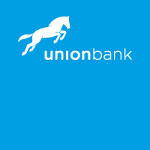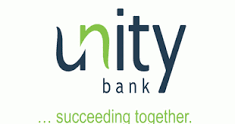Union Bank’s PBT Hits ₦24.7bn, Declares 25 kobo Dividend

By Ngozi Onyeakusi– Union Bank Plc., one of Nigeria’s longest standing and most respected financial institutions, has recorded an impressive performance as its profit before recorded ₦24.7bn, for its audited financial statements, for 31st December, 2019, thus showing 33 per cent surge over the 2018 figure ₦18.7bn .
Consequently, the board Union Bank has declared a dividend payout of 25 kobo per 50 kobo share for the period.
The dividend which is subject to shareholders approval remained a major milestone for both the bank and shareholders, for this is first time since 2008, Union Bank is declaring a dividend.
The banks Gross earnings similarly grew by 14% to ₦159.9bn from ₦140.1bn recorded in 2018, the growth the lender said was driven by an increase in assets while Interest income rose 11% to ₦116.5bn from ₦104.8bn recorded in 2018 financial year.
Gross earnings as well increased by 14% to ₦159.9bn from ₦140.1bn recorded in 2018, thus driven by an increase in earning assets while Interest income equally soared by 11% to ₦116.5bn from ₦104.8bn recorded I n 2018 financial year.
Commenting on the results, Emeka Emuwa, CEO said: “The Bank’s strong overall performance has paved the way for a critical milestone. With the approval of the Central Bank of Nigeria, the Board of Directors will recommend a dividend payment to shareholders for the first time in over a decade. Returning value to our shareholders has been at the core of Union Bank’s transformation and continuous drive to become a leading financial institution in Nigeria.
The Bank delivered a solid set of results for full year (FY) 2019, recording growth across the major income lines. The top-line revenue at ₦159.9bn is up 14% from ₦140bn in 2018. Profit Before Tax (PBT) increased by 33% from ₦18.6bn in 2018 to ₦24.7bn for the year.
Core to our earnings has been the conscientious growth of our loan book. The Bank booked ₦98bn in new loan assets in the course of the year reflecting a 20% growth to close at ₦595.3bn in Gross Loans.
As a result of our larger loan book and intensified recovery efforts, Non-Interest Income grew by 23% from ₦35.3bn to ₦43.3bn in the period with recoveries accounting for ₦8.8bn of the total amount.
Consistent with our vision to be Nigeria’s ‘most reliable and trusted banking partner,’ we are optimizing our business model to focus solely on Nigeria where we continue to invest and thrive. Consequently, we have made the strategic decision to divest of our UK subsidiary, Union Bank UK which will enable us focus on the distinct long-term opportunities in the Nigerian market. The divestment is expected to conclude in 2020 subject to regulatory approvals in Nigeria and the UK.
In 2020, we will continue to focus on bottom-line initiatives that will build on our success in 2019. We are promoting synergy across our businesses and functions to ensure alignment with and on our strategic objectives.
Speaking on the FY 2019 numbers, Chief Financial Officer, Joe Mbulu said:
“Our Group numbers reflect the classification of our UK subsidiary as a discontinued operation in line with IFRS 5. This is reflected in both 2018 and 2019 numbers.
We are proud of the top-line and bottom-line numbers the Bank delivered in 2019, owing largely to operational efficiencies and a laser focus on key deliverables.
Through our LEAP initiative, our focus on discretionary cost discipline led to a reduction of N2.4 billion on related cost lines driving overall expenses down. Consequently, our Cost-Income Ratio declined to 74.1% from 79.2% in 2018. Our Total Customer Deposits grew by 5% to ₦886.3bn from ₦844.4bn as at December 2018 with low-cost deposits up by 7.7% and now accounting for 74% of total customer deposits compared to 71% in 2018.
With our sustained and aggressive focus on recoveries to improve asset quality, we have brought the Bank’s NPL ratio down to 5.8% from 7.8% as at December 2018, in line with our 2019 guidance. Capital Adequacy Ratio (CAR) remains well above the regulatory threshold at 19.7%.
We will leverage our improved risk asset and capital base as we continue to rebuild our loan portfolio which we expect to be a significant driver of growth in 2020.”







Leave a Reply